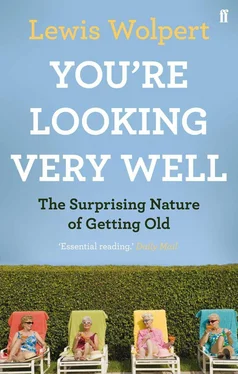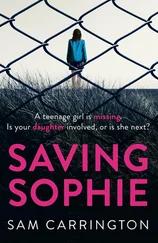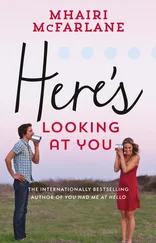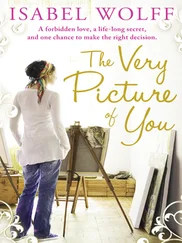One way that implicit or explicit ageism may manifest itself is through the use of patronising language with older people. There are many ageist articles in the media, often presenting the elderly as a burden on younger people in families and society at large. Critical analyses have suggested that both negative and positive newspaper portrayals of old people may be ageist.
Negative stereotypes of older people range from the hostile image of a ‘cantankerous old codger’ to less explicit images. Not uncommon ageist terms inlude ‘old fogey’, ‘old fart’, ‘geezer’, and ‘old goat’; even the word ‘old’ itself is often used as an insult. Elderspeak refers to a way of communicating with the elderly—it is simplified language with exaggerated pitch and intonation. This can be based on beliefs about the elderly and personal experience.
The term ‘patronising language’ specifically describes two negative methods of communication: the person being unnecessarily courteous and speaking simple and short sentences loudly and slowly to an older person, with an exaggerated tone and high pitch; and baby talk, which involves the exaggerated pitch and tone that one uses when talking to a baby. Both these ways of talking have negative effects on the elderly. Anti-ageism activists in the US have strongly argued against the use by journalists of terms such as ‘elderly’, ‘fogey’ or ‘codger’—and even ‘senior’. They recommend the avoidance of phrases such as ‘of a certain age’, and ‘old ladies’ of both the ‘little’ and ‘sweet’ variety. The advice is included in a media guide on reporting issued by the International Longevity Center and Aging Services of California.
In this guide, the campaign attempts to help journalists and advertisers represent ‘older people’—its preferred term—in a ‘fair contemporary and unbiased’ manner. The authors state that 80 per cent of older Americans have been subjected to ageist stereotypes. While names and characterisations may vary, the message is the same: older men and women are incompetent and lack sufficiency. Journalists are advised: ‘If you need to identify individuals over the age of 50, “older adults” is preferred over “senior” and “elderly”, which can be discriminatory in nature as we do not refer to people under 50 as “junior citizens”. If relevant to the story, state the age.’ Out goes ‘golden years’ as a description of an individual’s period of life after being deemed to be an older adult.
Images as well as words may be ageist. Campaigns have been mounted in Denmark and some other countries to counter images of old people shown as overweight or sickly. In Australia money was given to promote the contribution of the old to social life: ‘Look past the wrinkles’ was on a billboard in Melbourne.
The stereotypes and infantilisation of older people by patronising language affects older people’s self-esteem and behaviour. Ageism, as distinct from discrimination, has significant effects. Exposure to ageist stereotypes has negative affects on physiology and mental abilities. After repeatedly hearing that older people are useless, older people may start to perceive themselves in the same way that others do, as dependent, non-contributing members of society. Studies have specifically shown that when older people hear about their supposed incompetence and uselessness, they perform worse on measures of competence and memory. These negative stereotypes thus become self-fulfilling prophecies. Then this behaviour in turn reinforces the present stereotypes and treatment of the elderly. Negative attitudes towards older adults and stereotypes about older people emerge early in a child’s life, even in such a simple ways as, for example, selecting a younger adult to partner them in a game rather than an older adult.
Ageism operates in high-profile professions no less than in others. In a recent interview, actor Pierce Brosnan, aged 57, cited ageism as one of the contributing factors as to why he was not asked to continue his role as James Bond in the Bond film Casino Royale , released in 2006. Successful singer and actress Madonna spoke out in her 50s about ageism and her fight to defy the norms of society. The actress Geena Davis, at 52, complained that she could not get a decent role because of her decrepitude. Joan Bakewell, who was appointed by the government as the ‘voice of older people’, has criticised the BBC for banishing female news presenters once they reach 50, and for the general lack of older female faces. Arlene Phillips was dropped from Strictly Come Dancing when she was 66. The journalist John Simpson has also complained about ageism in the BBC. Yet just how impressive older women can be was shown when the 89-year-old novelist Baroness P. D. James interviewed the director of the BBC on the Today programme about his executives’ pay packages and, according to press reports, reduced him to a stuttering wreck. But a very recent tribunal ruled against the BBC for dismissing a 53-year-old female presenter.
In the US version of The Weakest Link , contestants’ voting decisions were, on average, biased against older panellists. At the stage of the game where it is in participants’ interests to vote for poor performers, older people were likely to be chosen even when younger adults had performed worse. But when contestants would benefit by choosing top-performing rivals to eliminate them from the competition, they tended to choose lower-performing, older contestants. Subconsciously, the panellists simply did not want to be around older people.
In spite of its negative effect on the daily lives of older people, ageism is often unrecognised, ignored or even compounded in health and social care settings. And social exclusion has only recently been officially acknowledged as affecting older people as well as children and families.
Older consumers have grown into a market force to be reckoned with, says Age UK, as new figures reveal the amount of money spent annually by people over the age of 65 in the UK is set to hit the £ 100 billion mark. Yet despite seeing their weight in the consumer market grow as a group, older people are still at risk of being frozen out of a marketplace which is slow to adjust to the evolution of an ageing society. Research by the charities found that many older people think businesses and retailers have little interest in the consumer needs of older age groups, and many still face obstacles in accessing financial services which are tailored to the needs of younger customers.
There are other, more robust views. The actress Joanna Lumley proclaimed, ‘I am not being unkind but I am just saying millions of crones like me shouldn’t suddenly be given the lead in things just because we are damn old.’ But this laudable refusal to claim special privileges for the old should not blind us to the rights of the old to be treated fairly, or to the fact that ageism can lead to social exclusion, diminish the quality of life which older people may enjoy, and threaten their mental health.
‘Old age ain’t no place for sissies’
— H. L. Mencken
Joan Bakewell put the problem of care very simply:
It is what we all hope for. To enjoy our final years living in our own homes, among familiar things, not only the worldly goods but also the memories that cling to the place we know. We hope that when our time comes, some system will be in place that brings sympathetic and well-trained people to our homes, visiting at agreed times, bringing care and comfort, and whatever medical attention we will need. We probably don’t mind too much who provides that care as long as it is friendly and professional. Not much to ask?
Alas, it seems too much to get. A rather negative view came from Michelle Mitchell, when a director for Age Concern:
Читать дальше












